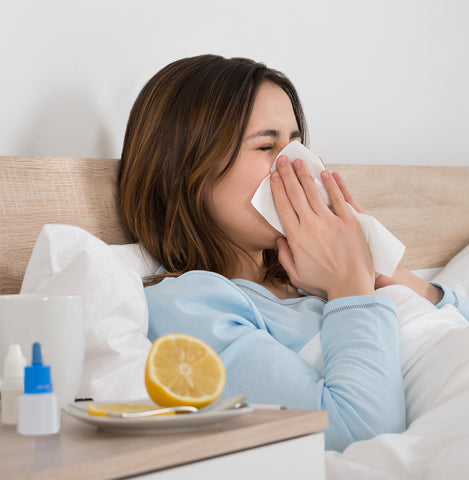How to boost your immune system with sleep
 Most areas of your life benefit from better sleep. You can feel better, improve your mental health, lose weight, and more. Sleep is also good for fighting off illness. Here are some tips to improve your immune system by getting more rest.
Most areas of your life benefit from better sleep. You can feel better, improve your mental health, lose weight, and more. Sleep is also good for fighting off illness. Here are some tips to improve your immune system by getting more rest.
How sleep helps
Your body makes something called cytokines, which is a protein that creates an immune response by targeting infections and inflammations. These proteins are both made and released during sleep. T-cells, which attack and destroy harmful cells, are produced in larger amounts during sleep.
While you can still get sick even with plenty of rest, missing out can make it worse. Even vaccines are less effective if you’re not well-rested.
Know how much to sleep
The amount of sleep needed depends on your age and other factors. Seven to nine hours is recommended for most adults, but find out what is right for you. If you have a bad night, you can help recharge with a nap. Studies have shown that taking a nap of 20-30 minutes in the morning and afternoon help make up for lost sleep.
Not sure if you’re rested? You can check to see if the signs of good sleep apply to you.
Avoid sleep aids
It may seem natural to relax before bed with some wine, or to make sure you get sleep by taking a sleeping pill. However, alcohol prevents REM, which means you won’t be getting the deep sleep you need to be rested. Sleeping pills also don’t give you deep REM sleep.
They also impact how you sleep, increasing the likelihood of aspiration. Aspiration is when fluid goes down the windpipe instead of into your stomach. This happens normally to most adults in tiny amounts. Usually, the fluid contains healthy bacteria, but if there are other microbes around, those can get down into the lungs instead.
Reduce stress
The more stress on your body, the more work it has to do, and the less energy it has for fighting germs. Sleep is when non-essential functions power down so that your body can recharge, restore, and rebuild.
When life is complicated, it can be hard to wind down before bed, but it’s essential to getting a good night’s sleep. Stress can keep you up and interrupt what sleep you do get. Try some common stress relief methods:
- Practice meditation or yoga (which also improve sleep time and quality).
- Turn off any electronic devices at least an hour before bed.
- Watch what you eat, and avoid eating or drinking too much up to 3 hours before bedtime.
- No caffeine or alcohol – go for herbal tea like chamomile instead.
- Exercise during the day, but not too close to when you’re going to sleep because it can increase your metabolism.
- Make time for worries. Your mind needs to process what’s going on, so set aside time earlier in the day to go through whatever is weighing on you. Make plans to address your concerns. Then put them aside.
These methods can also help with overall stress levels. Studies have revealed that stress makes the body lose its ability to regulate its inflammatory response, which means disease can advance without as much resistance.
Make sure you’re following other healthy practices as well. It’s important to continue to wash your hands regularly, eat right, and check in with your doctor.

